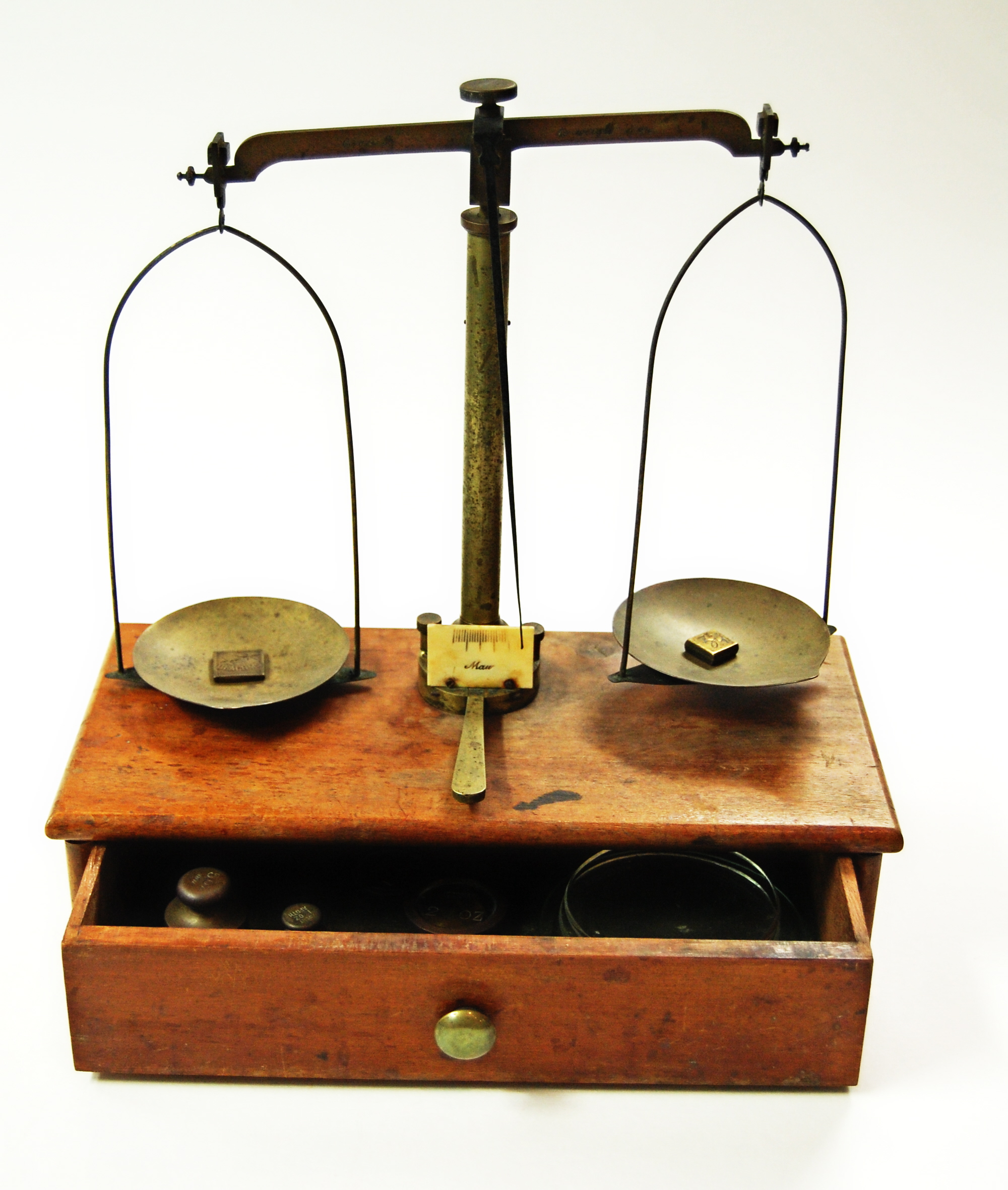

This early 20th Century apothecary’s balance was used for accurate weighing of medicines and ingredients for medical treatments.
An apothecary is a historical term for a medical professional who measures, formulates and dispenses medicines. Today, pharmacists have taken over this role. Apothecaries were responsible for accurately measuring out ingredients for medicines. It was important the correct doses of each ingredient were measured to ensure a safe treatment was provided to the patient. As with cooking, or any other balance scales the level hanging of the two pans indicates that there are equal measures of the metal weights and the ingredient or product being weighed. The scale would have also been used by chemists in the same way.
The wooden base contains a draw to hold the various weights and additional measuring pans which can be removed from the metal frame.
Since medieval times apothecaries have supplied the medicines of the day to physicians and patients as well as selling spices and herbs. In 1617, by Royal Charter, apothecaries in the U.K. founded the Society of Apothecaries. In 1815, the U.K. government passed the Apothecaries Act which established that the Society of Apothecaries would be responsible for regulating all apothecaries to dispense and supply medicine. However, later that century in 1858 the General Council of Medical Education and Registration was established to regulate all the medical professionals under one central body.
Today the Worshipful Society of Apothecaries continues to play a key role in the medical profession.
This object is on display in the Measurement display case at the George Marshall Medical Museum.